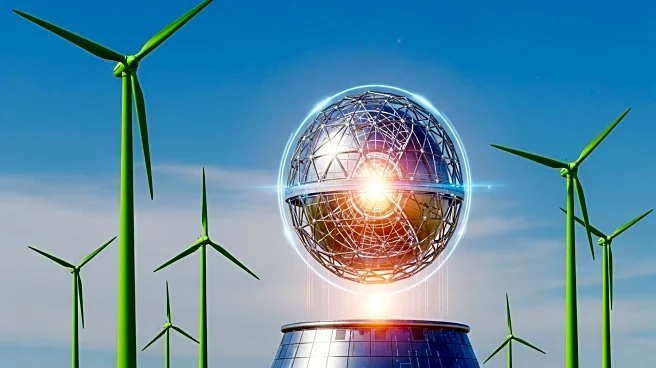What's Happening?
Poland is at a critical juncture in its energy transition, with plans to build 6 to 9 GW of nuclear power facing delays and financial uncertainties. The government initially scheduled the first reactor for 2033, but this has been postponed to at least 2036. Poland's nuclear strategy involves constructing three AP1000 reactors on the Baltic coast, echoing past attempts to integrate nuclear energy into its system. However, historical evidence suggests challenges, as successful nuclear programs have typically been aligned with military objectives and standardized designs. Poland, a NATO member without a nuclear weapons program, lacks the strategic alignment that has historically supported nuclear development.
Why It's Important?
The significance of Poland's nuclear plans lies in their potential impact on the country's energy security and economic future. Nuclear power could provide a stable energy source, but the delays and financial risks associated with the AP1000 reactors raise concerns. Poland's reliance on U.S. technology for these reactors introduces geopolitical risks, as changes in U.S. policy could affect project costs and timelines. Meanwhile, Poland's renewable energy sector is thriving, with significant growth in solar and wind power reducing coal dependency. This contrast highlights the potential for renewables to offer a more flexible and economically viable path to energy security.
What's Next?
Poland faces critical decisions regarding its energy strategy. The government must address the financial and logistical challenges of its nuclear program while considering the rapid expansion of renewables. Potential EU funding and state aid are being explored to support nuclear development, but approval remains uncertain. Poland's leaders may need to reassess the balance between nuclear and renewable energy investments, considering the success of wind and solar projects in attracting private capital and EU backing.
Beyond the Headlines
The deeper implications of Poland's energy strategy involve the ethical and economic considerations of nuclear power versus renewables. Nuclear projects often face cost overruns and delays, posing risks to national budgets and energy security. In contrast, renewables offer modular, scalable solutions that align with global decarbonization goals. Poland's experience with past nuclear projects, such as the abandoned Żarnowiec reactor, serves as a cautionary tale of overreach and financial strain.










